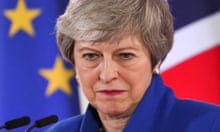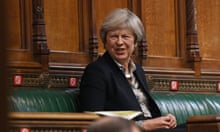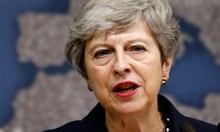Political parties will be told to disclose to the public who is paying for digital adverts, the elections watchdog has announced, following the concerns raised by Theresa May that Russia has influenced UK elections.
The Electoral Commission will also ask political parties to provide a detailed breakdown of how much money is spent on digital advertising, following concerns that the public needs more information about who is behind adverts pushed on social media.
It comes as MPs on the House of Commons media committee prepare to begin an inquiry into whether Moscow has tried to interfere in British politics, which is due to hear from representatives of Twitter and Facebook.
On Monday night, May used her annual Mansion House speech to accuse Russia of meddling in elections and planting fake stories in the media to sow discord in the west.
The commission’s recommendations include demanding that political parties and non-party campaigners should be required to include an imprint stating who has published an advertisement.
“This would enable voters to identify who is spending money trying to influence them at elections,” the commission said.
Campaigners should also be required to report more detailed breakdowns of spending, including different types of advertising such as online and social media promotion.
The commission also recommends its investigative and sanctioning powers at elections be extended to include offences relating to candidate spending and donations.
Sir John Holmes, the commission’s chair, said: “Most candidates, parties and campaigners comply with the rules. However, failures to comply can reduce transparency and damage voters’ confidence in elections, which is why breaches must be dealt with effectively.
“We want to work with the UK’s governments and legislatures to ensure further transparency about spending on digital and online campaigns, and to reassure voters accordingly. These changes should be in place ahead of the next scheduled national elections.”









